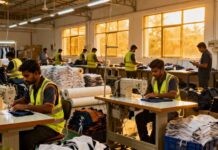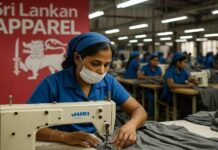The Global Fashion Agenda (GFA) has partnered with Deloitte to launch the Fashion Impact Toolkit, an interactive resource designed to assist businesses in navigating sustainability challenges within the textile industry. This toolkit aims to help companies identify critical sustainability issues across the textile value chain while ensuring adherence to evolving regulatory standards.
The toolkit highlights essential environmental, social, and governance (ESG) factors, advocates for enhanced supplier collaboration to bolster transparency, and promotes innovation in both materials and business models.
Featuring a comprehensive visual representation of the value chain, the Fashion Impact Toolkit details various activities, sub-activities, and material filters, enabling users to conduct thorough impact assessments effectively. While it offers a structured overview of both positive and negative sustainability impacts in line with the European Sustainability Reporting Standards (ESRS), it does have limitations. The toolkit does not provide a complete double materiality assessment, as it overlooks certain risks and opportunities within the value chain and lacks a quantitative evaluation of the identified impacts.
Targeted towards stakeholders throughout the textile supply chain—ranging from raw material producers to waste management professionals—the toolkit is applicable across various sub-sectors, including high-street fashion, luxury goods, footwear, sportswear, and textile manufacturing. It enables users to filter sustainability impacts systematically by activity, sub-activity, material, and geography, offering a foundational layer for customization tailored to specific organizational contexts.
To facilitate user engagement, the toolkit includes a user-friendly seven-step framework developed based on Deloitte’s expertise. This structure aims to transition users from understanding sustainability impacts to implementing concrete actions. By utilizing the toolkit, GFA and Deloitte hope to empower companies to recognize their impact areas and effectively prioritize actionable solutions, driving meaningful progress throughout their supply chains.
This collaborative initiative reflects the increasing urgency for the fashion industry to adopt sustainable practices in response to growing environmental concerns and consumer expectations.

































